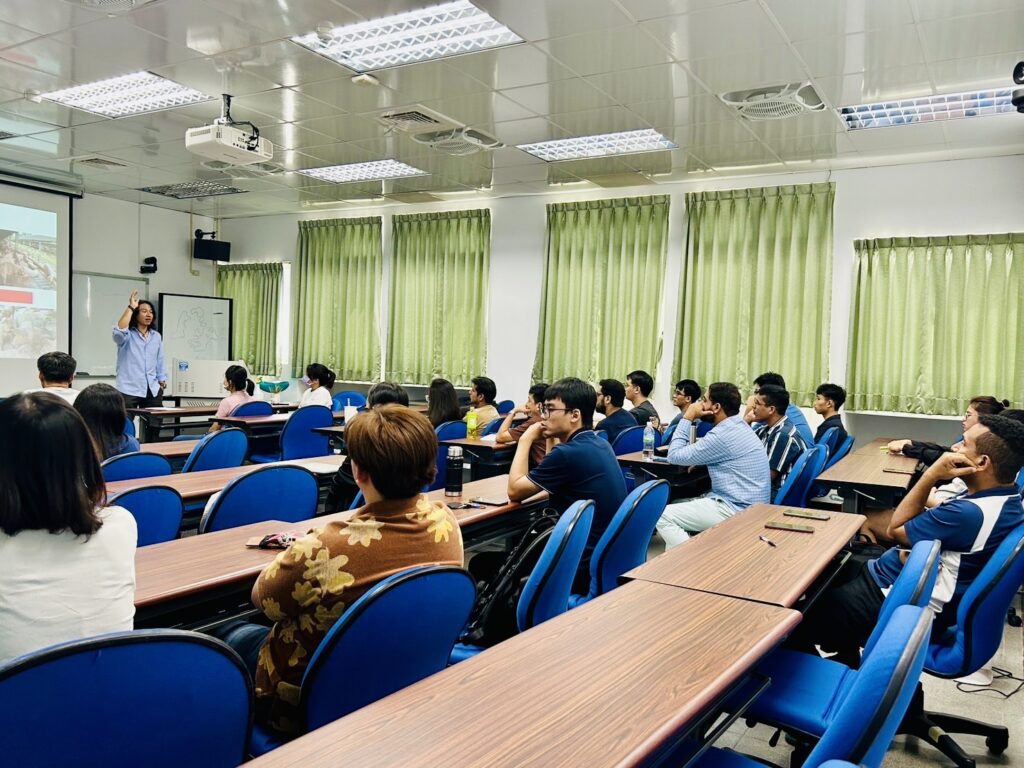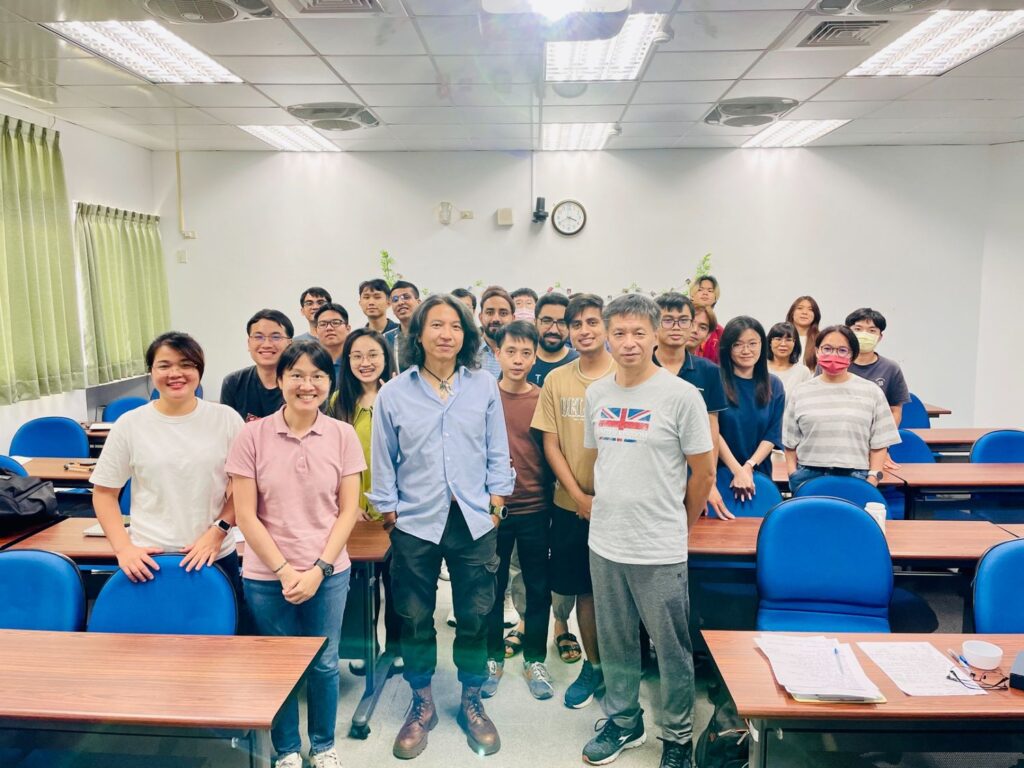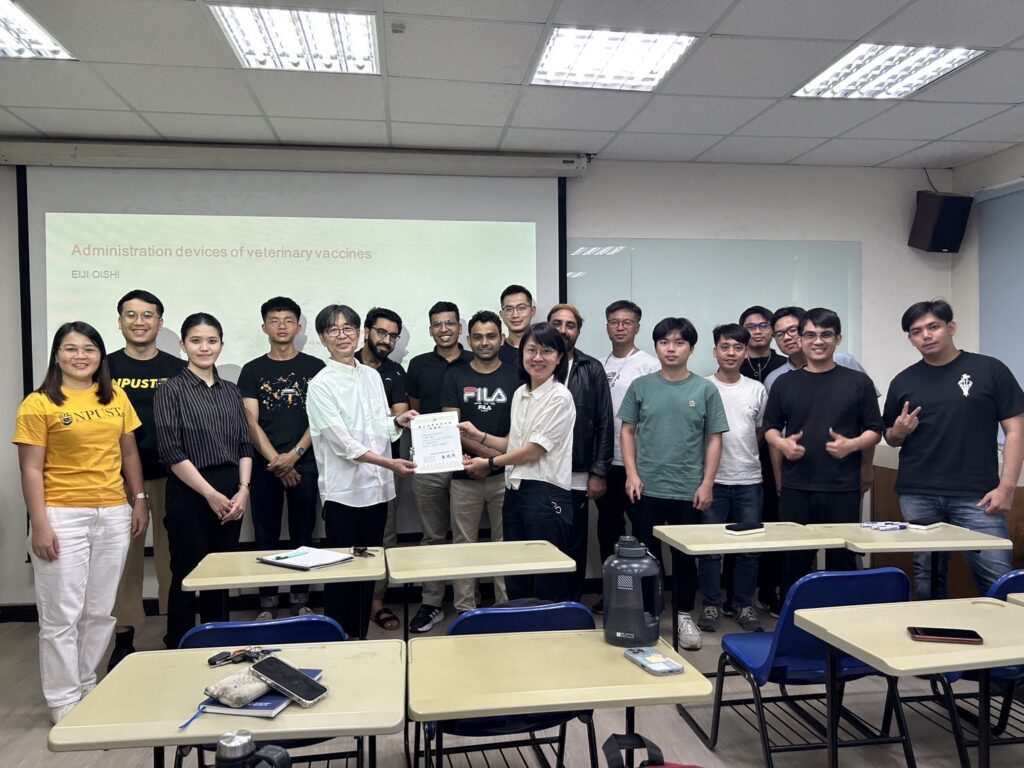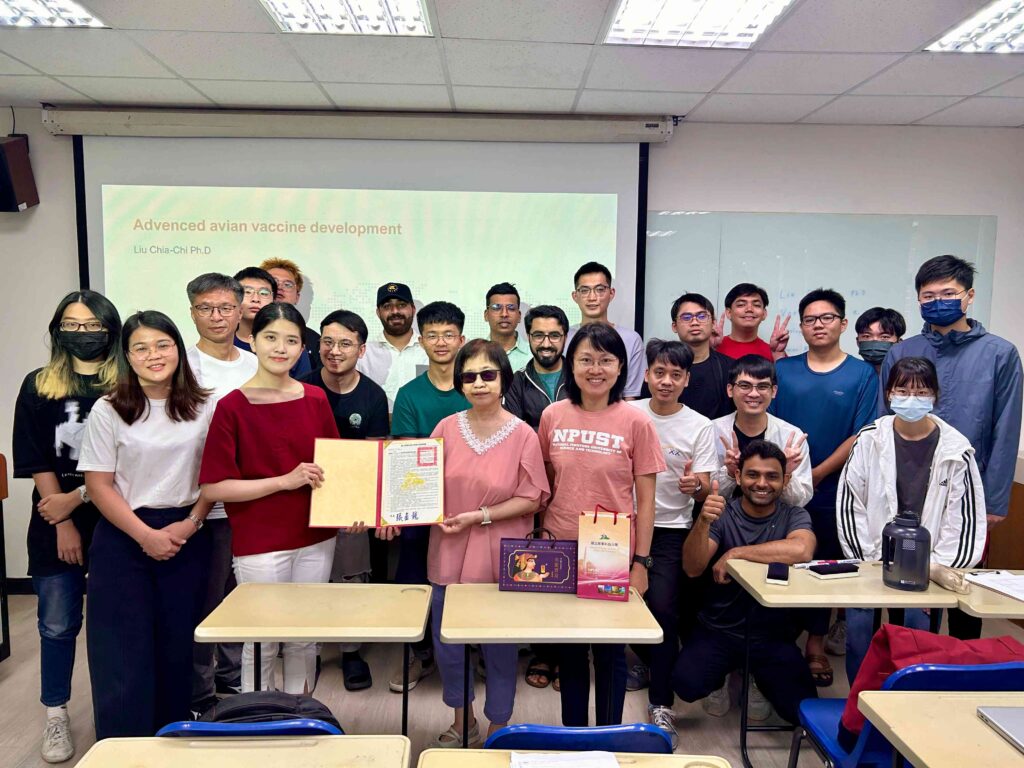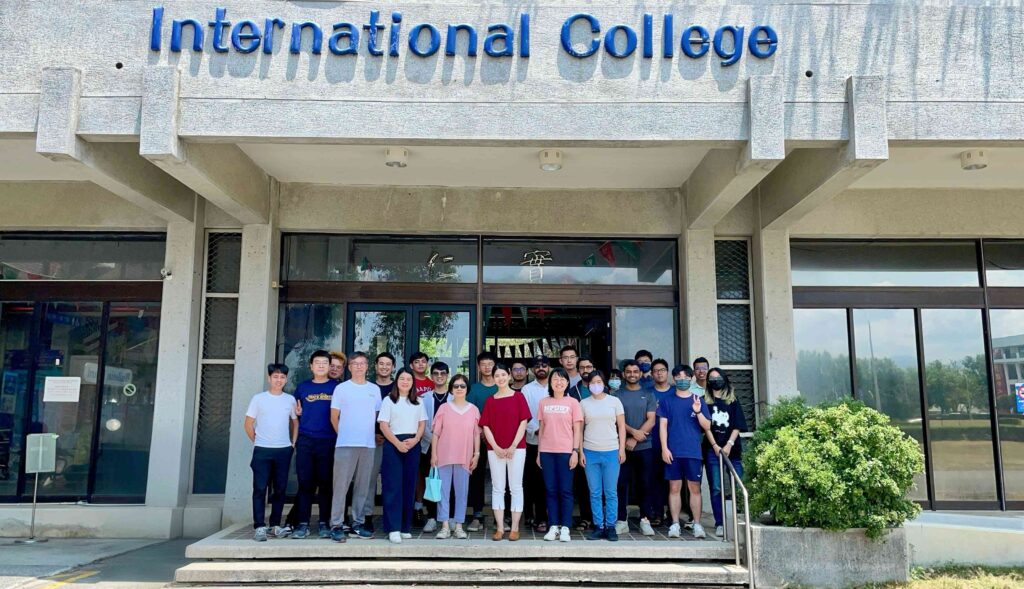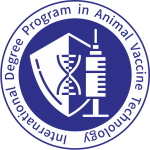On September 24, 2024, Prof. Jai-Wei Lee from the DTAIC Department presented an engaging seminar on the Swine Industry in Taiwan. At the seminar, Prof. Lee shared updated insights into the future of swine production in Asia and Taiwan, discussing the significant challenges faced by the industry, including rising feed costs and the impact of diseases. Prof. Lee also explained Taiwan’s variable feed system and introduced innovative activities for swine selling, such as live animal auction markets. This informative session provided valuable knowledge for students about the evolving landscape of Taiwan’s swine industry.
The following are some photos of the seminar held in IAVT Department.
